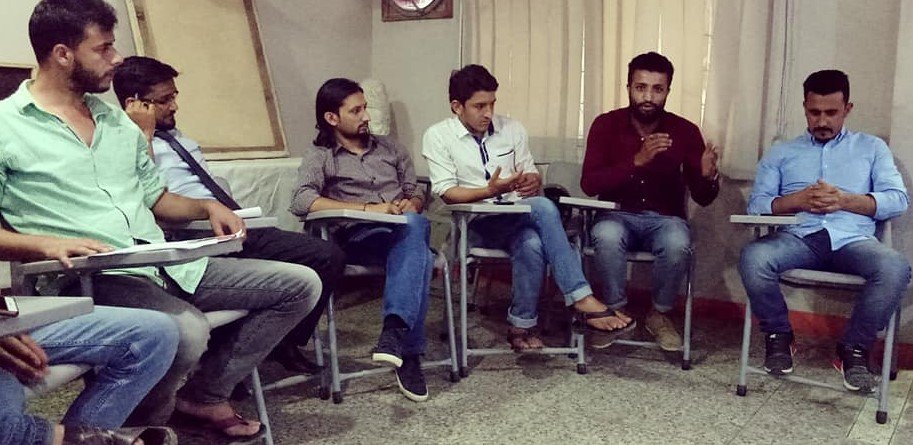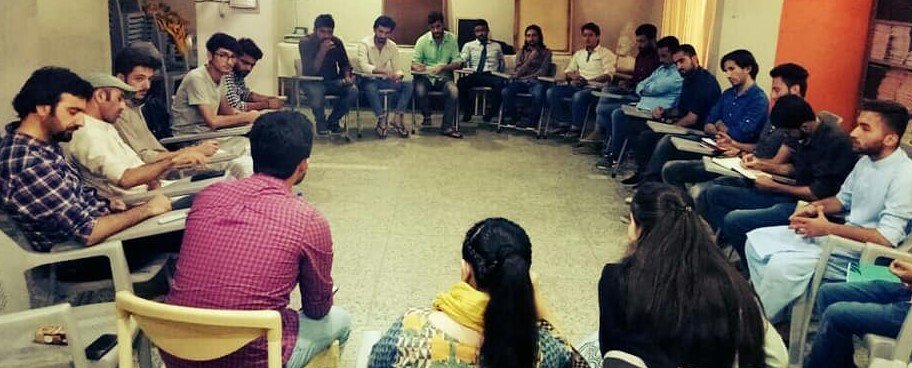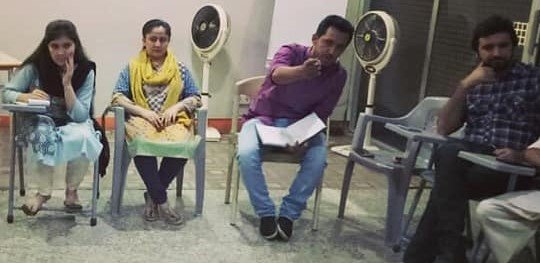Ehtisham Khan
Karachi
NSF-GB, Sindh Zone, organizes the 29th study circle at Karachi to discuss impact of mega projects on people, environment and ecosystem of GB
The participants of a study circle unanimously opposed the proposed policy of the GB government to grab land and resources of the local people under the garb of ‘Khalsa Sarkar’ an outdated policy that was enforced in Gilgit and Skardu during the Dogra rule.
Now the current GB government at the behest of the powerful non-local elements and organizations has announced to usurp the traditional shaamilat or collective land in some districts of GB to facilitate non-local investors and mafia to grab the land and resources of GB in the name of security and development.
They urged the progressive and nationalist political and student organizations to get united and counter this move.
The 29th study circle on “Development projects and Khalsa Sarkaar” and potential threats of dispossessing the people of Gilgit-Baltistan from their land and resources in specific and Pakistan in general” was organised by the National Students Federation Gilgit-Baltistan, (NSF-GB) Sindh zone at the Irtiqa Institute of Social Sciences Centre, Karachi.
A good number of students from different organizations of GB and universities as well as academics and professionals attended the discussion.
NSF-GB Sindh Zone president Anayat Baig initiated the session with a brief background of the topic.
The participants discussed the impending threats to the collective ownership of the people on their land and resources and stressed the need for developing an intellectual discourse among the youth to counter any move by the ruling elite and the external powers to dispossess and deprive the people of their land.
They also discussed the neo-liberal development model in detail in the light of three essential parameters: its impact on the human to human relations, on the human to environment relation, and coverage of gender question in development projects.
The participants expressed deep concerns about how the mega projects will affect the social relationship among the people of the region as well as the environment and ecosystem of Gilgit-Baltistan.
They engaged in a fruitful thought-provoking debate on rising trend of land grabbing by the government under the garb of ‘Khalsa Sarkaar’ in historical perspective.
The participants condemned incidents of land grabbing in some districts of Gilgit-Baltistan in the name of security and development. They stressed the need for mobilizing people to launch a movement for protecting the fundamental rights of the 2 million people.
They also appreciated the study circle and urged for organizing more such sessions to discuss other burning issues.
Ehtisham Khan, who moderated the session in his concluding remarks said that the NSF-GB has been organising study circles for the last five years to provide a platform for the youth to develop a critical thinking and discourse on social and political issues.
“We are very happy to learn that our youth tries to understand and intervene with a political consciousness,” he said.
“We will continue our efforts to continue the process,” he assured the youth.
The next study circle will be held in the first week of April on “Colonialism, Colonization and the Women Question”.

The participants also expressed resentment over the regional government’s anti-people stance and called for building a collective and pro-people counter-narrative to the state’s brutal policy on development in implementing China-Pakistan Economic Corridor (CPEC) and mining exploration licences.
They also called for the restoration of state subject rule in the region to stop demographic imbalance and protect the rights of the indigenous people.
There are rumours that the GB Council has issued licences for mining concession and exploration in Ghizer, Baltistan and Hunza districts in a clandestine manner without taking the consent and NoC from the local people creating unrest and resent among the people.
The people have vowed to resist such moves and threatened to launch a movement to protect their resources and land.

The High Asia Herald is a member of High Asia Media Group — a window to High Asia and Central Asia




